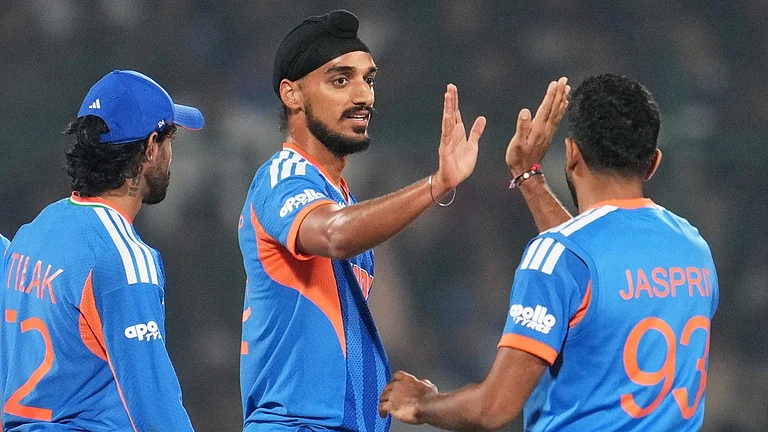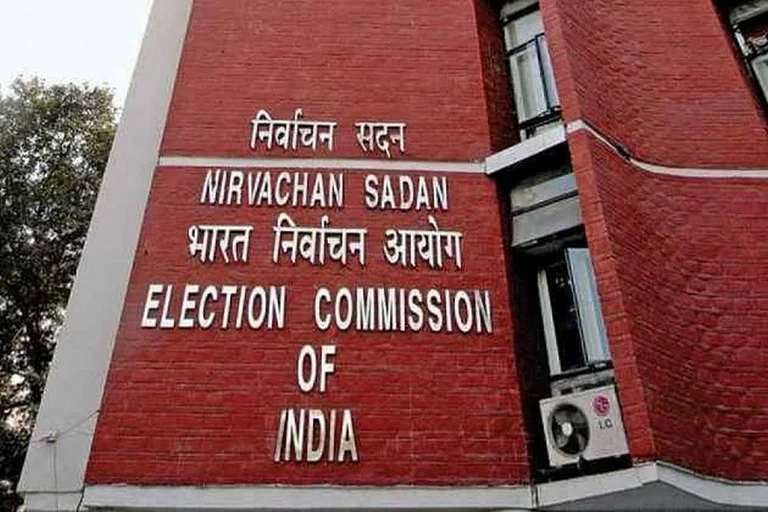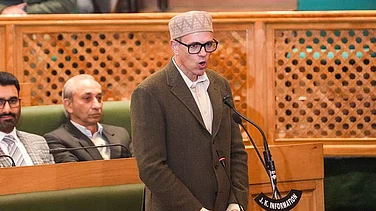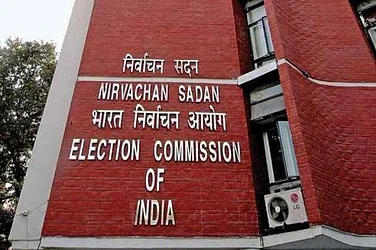Mohammad Safi, sitting in his courtyard, just opposite one of the oldest mazhars of Sonpur village in Chhindwara district is quite confident about Kamal Nath’s victory. “He will win the elections because of his popularity,” he says. Standing near the chair where the septuagenarian Safi sits throughout the day, observing the political activities across the faliya (colony), Mohammad Nizam, in his 30s, intervenes, “There is hardly a person in this district who didn’t get the support of Kamal Nath ji, when needed. One of my friends staying in a nearby village took his mother to Delhi for treatment. Nath took care of everything.”
Nizam’s friend just had to inform the security guards that they are from Chhindwara and the rest was taken care of by the nine-time MP. Not only his friend, there are many in the district who narrate similar experiences about the Congress leader.
“His popularity gives the Congress the necessary push in the elections. As far as the MLAs are concerned, they are of no use,” says a veteran, who doesn’t want to be named. This village, situated in Amarwara constituency, has been a traditional Congress bastion. While Kamlesh Shah won the seat in 2018, locals call him a jagir or a zamindar. “He neither did any work for us nor did he come even once after the elections. Sometimes, he roams around in his jeep, just like a zamindar,” adds Safi.
Even after his poor performance, the local people voted for Nath. Though the development work of the Congress leader is visible—wide roads, schools, hospitals and industries—what one cannot miss is the water problem in the villages. “Nath cannot do anything about it unless he becomes chief minister. During his 15-month tenure, he waived loans of around two lakh rupees of many people,” says a villager of nearby Bhurukam.
Around 70 km away from Chhindwara district, public buses are getting ready to carry people to Prime Minister Narendra Modi’s rally at Seoni. Overtaking the queue of buses from one side is a campaign tableau of Chief Minister Shivraj Singh Chouhan. As a peppy song chanting Mama’s (Chouhan’s) achievements sets the mood of the tea stall, where a few supporters have gathered for a break, one of them quips, “Mama Mama hi hai (Chouhan is incomparable and his hold on the ground is still unquestioned).”
While this is also the mood prevalent in the Adivasi-dominated Malwa Nimar region—where the BJP candidate of Jhabua, Bhanu Bhuriya, says that they are fighting the election only in the name of Chouhan—the central leadership had different plans. On the one hand, they didn’t declare Chouhan as their CM face to avoid anti-incumbency and fatigue, and on the other, they fielded several big names like Narendra Singh Tomar and Kailash Vijayvargiya, possibly to impose a power balance. One of the regional BJP leaders, on the condition of anonymity, says, “People are with Chouhan and any effort to disturb the balance would lead to the party’s defeat in the elections”.
Another major concern for the party, however, is the consecutive pre-election videos of allegedly Devendra Tomar, the son of Union minister Narendra Singh Tomar, pertaining to some unscrupulous financial transactions. As the videos have gone viral, Tomar himself has come out on social media calling it a “conspiracy”.
There are two factors that could be considered as the fulcrums with the potential to affect the electoral outcome. Firstly, the popularity of Nath coupled with the possible power-tussle with Digvijay Singh in the coming days and secondly, the anti-incumbency faced by Chouhan, accompanied by allegations of corruption and the internal strife mostly propelled by the centre’s attempt to pull the strings. Other factors like caste politics and the dominance of the SP and the BSP, allegations of soft Hindutva, and fissures in the INDIA alliance are also going to play a determining role in the electoral battle that is seemingly going down to the wire.
Will BSP or SP be spoilsport?
Madhya Pradesh can be electorally divided into seven segments. If one looks at the seat distribution, one can find the following divisions—Chambal (34), Bundelkhand (26), Vindhya (30), Mahakoshal (38), Madhya Bharat (36), Malwa-North (38), and Malwa Nimar (28).
“Every region of the state has different socioeconomic backgrounds and different political histories. Whereas Vindhya and Bundelkhand are relatively poorer regions, Malwa and Madhya Bharat seem to be prosperous,” says Yatindra Singh Sisodia, director, Madhya Pradesh Institute of Social Science Research. Interestingly, the regions sharing borders with other states get politically affected by their politics. Chambal, Bundelkhand and Vindhya, being very close to Uttar Pradesh, carry with it the political essence of the state.
These are the regions where caste politics plays a formidable role and the SP and the BSP have some hold on these constituencies, say political analysts. The BSP won two seats from this region in 2018, and although their vote base has declined this time, they can play spoilsport for the Congress in some seats, adds Sisodia.
Bhind in Chambal division is a case in point. In 2018, it was won by Sanjiv Singh Kushawa of the BSP, but in 2020, he joined the BJP—he was part of Mayawati’s coterie since 2013. But this time, since the BJP has denied him a ticket, he has once again come back to the BSP and is fighting from the seat. “Here, the BSP has a chance to retain its seat and it will even impact some other seats like Dimani,” says Rakesh Pathak, a senior political analyst who has extensively worked on the Scindia family’s politics.
However, Sisodia thinks that the BSP, with a vote share of five per cent, would not have much impact, except in some odd seats. “But, the turncoats from the Congress and the BJP, who have joined the BSP, will definitely affect the margins,” he adds.
On the other hand, people close to the Congress power circle note that the SP is not going to affect their poll prospects at all. They cite two reasons: Nath’s sincerity to the OBC cause—he cleared the 27 per cent reservation that was later struck down by the court—and the Congress’ recent support to the caste survey. “We take all communities with us. Our vocal support for the caste survey and the promise of 27 per cent reservation resonate with the OBCs. It is evident from the support extended by the OBC Mahasabha to Rahul Gandhi in Bhopal,” says Abbas Hafeez Khan, the Madhya Pradesh Congress spokesperson.
Altamas Jalal, a senior journalist, believes that the lack of OBC leadership in the Congress might be an issue, but it will not impact the electoral prospects of the party. “The Congress doesn’t have big OBC faces, except Arun Yadav, whereas the BJP has leaders such as Uma Bharti and Shivraj Singh Chouhan,” notes Jalal. Several estimates suggest that the OBC voters constitute 50 per cent of the state’s population.

Though the Congress’ failure to forge an alliance with the SP may have had an impact in the INDIA coalition, in MP, the Congress has won the game of ‘social engineering’, says a senior reporter. The recent decision of Nath to grant an interview to the boycotted anchor, Navika Kumar, irked Akhilesh Yadav, and the party has even questioned the grand old party’s commitments to joint pledges.
Scindia—A liability?
Apart from the SP and the BSP and their possible impact, Chambal is a litmus test for Jyotiraditya Scindia and his dwindling political significance. In 2020, when Scindia joined the BJP with 22 MLAs, toppling the Congress government, it was expected that he would be able to give a new lease of life to the BJP in Chambal. However, political analysts say he has failed to deliver.
“The first test for Scindia was the 2020 by-elections, where the BJP performed poorly. Two of his loyalists even lost their seats. In the Gwalior municipal elections, the Congress won the mayoral elections for the first time in 58 years! So, the grudge against Scindia was growing within the party,” says Pathak.
These dissenting voices turned to protests when Scindia failed to gain tickets for his loyal supporters. Media reports suggest how Munnalal Goyal, the former MLA and a Scindia loyalist, stormed into the Jai Vilas Palace, forcing the royal kin to accept his ‘mistake’. Some political analysts suggest that the Congress will increase its tally in Chambal this time. In 2018, the party won 26 of 34 seats in this region.
Speaking to Outlook, Nath while referring to Scindia’s defection, says, “We have learnt a lesson and this is our time to teach one.”
Soft Hindutva?
Though BJP leaders, including PM Modi and UP CM Yogi Adityanath, have evoked the sentiments of Ram Mandir several times during their campaigns, it is hardly resonating on the ground. Communalism seems to have taken a backseat.
Most people think that the BJP’s efforts couldn’t work because of Nath’s devotion to Sanatan practices. While Nath sparked a controversy and was accused of peddling soft Hindutva for inviting Baba Bageshwar to his constituency, Chhindwara, the local people think it was nothing but his faith and this was in no way connected to ‘politics’. Mansoor, a resident of Chhindwara, in his late 40s, says, “It is his faith, and he can practice his beliefs without violating others’ rights. Muslims have no issue with it.”
Standing in front of the 101-foot Hanuman statue—which Nath founded in 2015, and has become a centre of attraction for the people—Ravishankar Shukla, the head priest, says, “Nath ji is extremely devoted to Hanuman ji. And there is no politics. It is a reflection of his devotion.” Rejecting the term “soft Hindutva”, Nath says, “I built the statue decades ago and it is a matter of my personal faith.”
But what about the Congress’ apparent silence in Khargone, which witnessed communal violence last year—leading to the transformation of Chouhan’s image as a ‘bulldozer mama’ who allegedly razed the houses of several Muslims? One analyst, on condition of anonymity, says, “This is also strategic.”
Bhopal-based political strategist, Sulabh Singh, nevertheless, thinks that the Congress is banking on soft Hindutva as it doesn’t want to lose its core voter base. “Both Nath and Digvijay Singh portray themselves as devout Hindus. And they want to retain this image,” says Singh.
Though Rahul Gandhi has been very vocal about proportionate representation, the Congress has given only two tickets to Muslims— Bhopal Central and Bhopal North. Arif Masood, the sitting Congress MLA from Bhopal Central, points out, “We have focused on the winnability of the candidates. We want to form the government and it is necessary for us to field those candidates who have the maximum chance of winning.” Muslims comprise almost seven per cent of the state’s population.
In Burhanpur, the Congress wanted to field a Muslim candidate, but the political equation didn’t support this proposal. In 2018, this seat was won by Sher Singh Meena as an independent candidate, who later joined the Congress. “Singh was denied a ticket from the Congress in 2018, yet he won the seat as an independent. This time, the party didn’t want to take any risk,” says Jalal. There is also the possibility of the AIMIM gaining from this seat, he adds.
In this context, the allegations of soft Hindutva don’t hold much water, says Ansar Rehman, a district-level Congress leader. However, nobody knows when the final game to evoke the communal sentiments will be played. “It comes through WhatsApp just before the elections and this can influence the floating voters,” says Shahroz Afridi, a Bhopal-based senior journalist.
Even a one per cent swing in the vote share can change the fate of the parties in Madhya Pradesh, he adds. In 2018, though the Congress bagged 114 seats as compared to the BJP’s 109 seats, the voting percentage of the former was 40.89 per cent in contrast to the latter’s 41.02 per cent. “Even if there is a one per cent swing in our favour, we will get around 150 seats,” says Abbas Hafeez Khan.
The environment of political tension over possible defections, nonetheless, still shrouds the Congress camp. “We don’t want to repeat what happened in 2020,” says a Congress supporter. While smirking at his hopes, a BJP supporter intervenes, “Tum dekhte jao, kya kya hota hai (you’ll see what happens).”
(This appeared in the print as 'Down To The Wire')



























